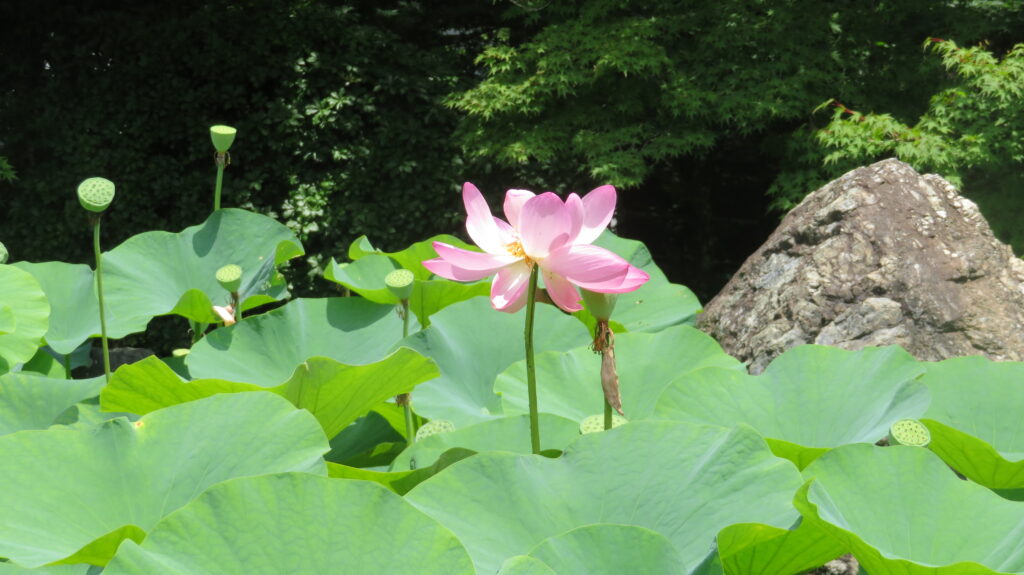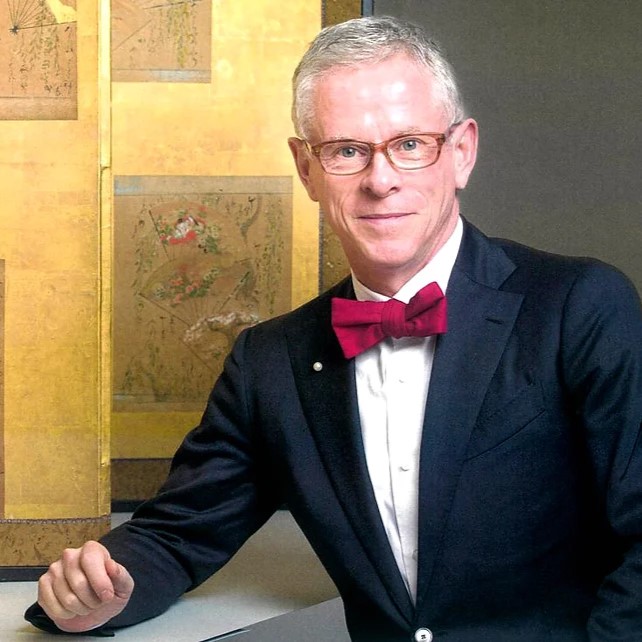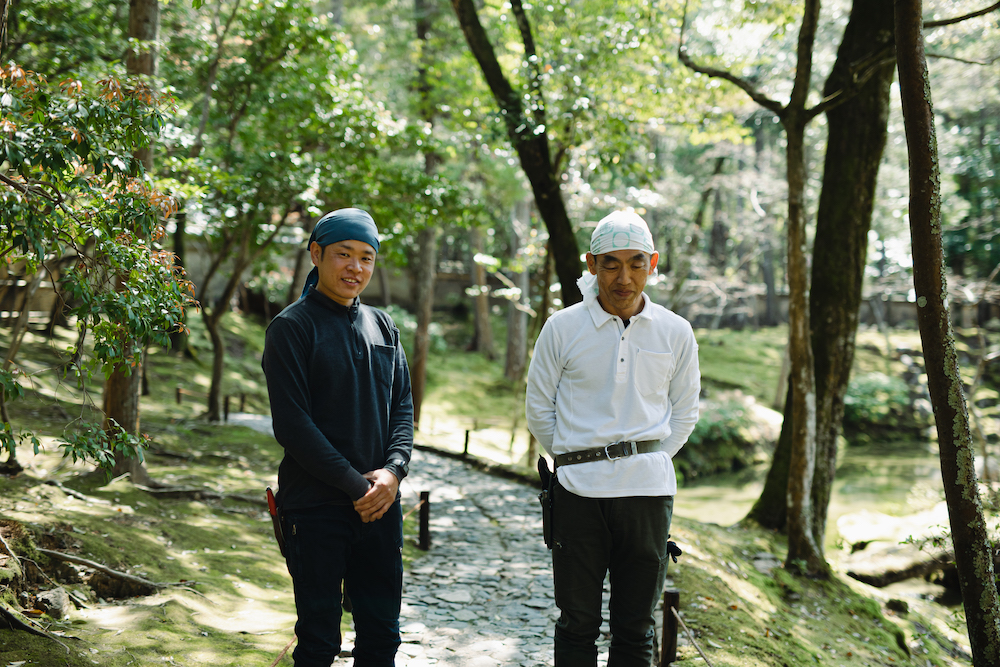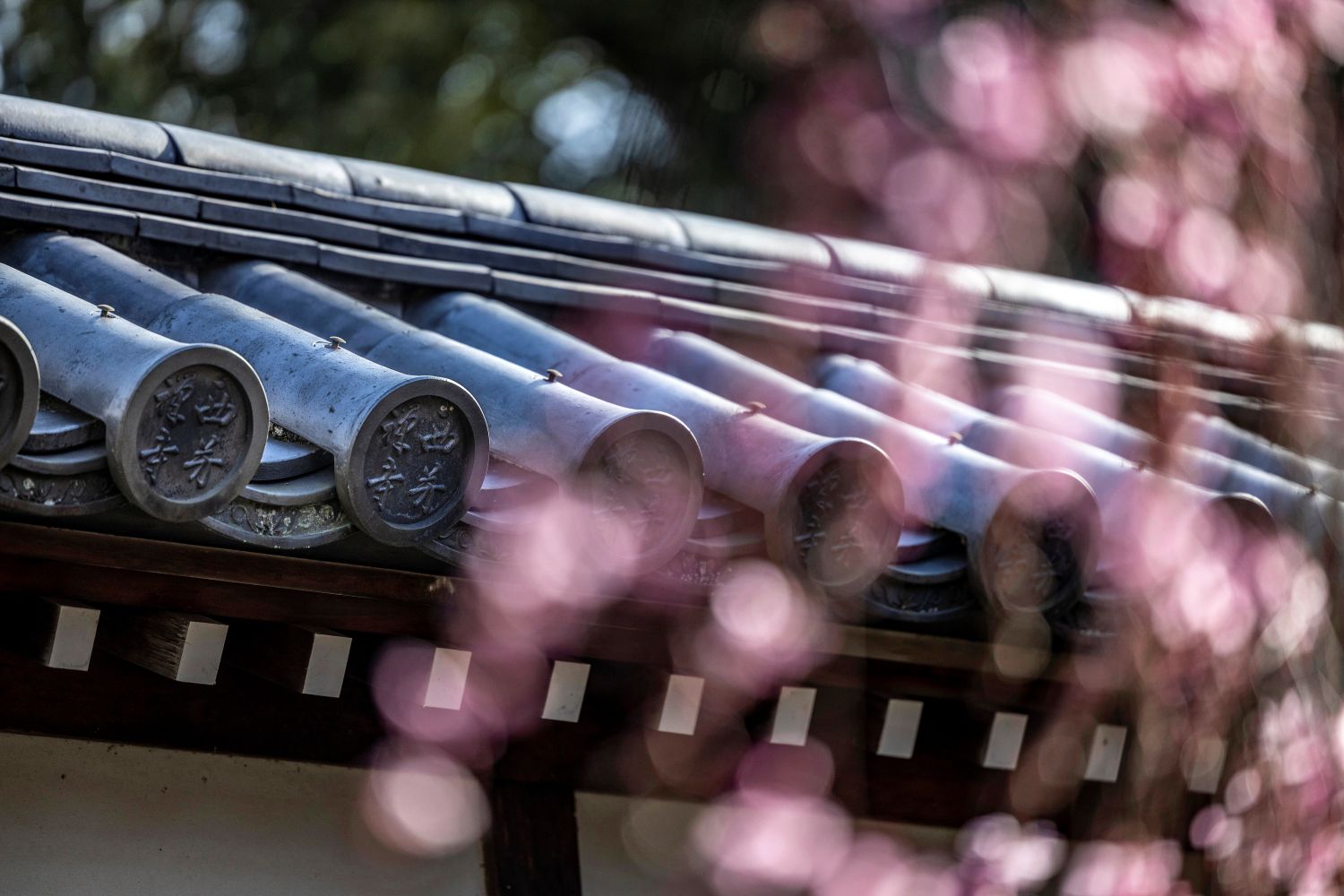2024.8.20
体露金風 西芳寺 第四景
ピーター・J・マクミラン
(翻訳家・詩人)
翻訳者であり詩人でもあるピーター・マクミラン氏が、西芳寺の魅力を綴る「体露金風 西芳寺」シリーズ。日本文化への造詣が深いピーター氏の感性と深い洞察が誘う、心の旅。ぜひ原文の美しい響きも、ご堪能ください。
苔庭にみる無常と不変
私は今日、若い友人と共に西芳寺にやってきました。この友人はチェコで医学を学んでおり、日本に一時帰国しているところです。彼は大切な人から、日本に残ってそばにいてほしいとお願いされたのですが、海外で学び医者になるという夢を追うことにしたと言います。私は百人一首に載っている、13世紀に詠まれた源実朝の歌を思い出しました。
世の中は 常にもがもな 渚こぐ あまの小舟の 綱手かなしも
(世の中は常に変わらずあってほしいなあ。波打ち際を漕いでいく海人の小舟が引かれていく様子は、しみじみとした気持ちになることよ。)
この歌で詠まれているのは、若き歌人・実朝が愛した美しい景色と、その景色がずっと変わらずあってほしいという彼の願いです。この歌人が20代にして暗殺されてしまったことを思うと、この歌がより一層切なく感じられます。
今私たちが生きている時代では、ソーシャルメディアや広告、そして消費社会によって、変化や新しいものごと、そしてこれまでにない刺激への欲求が、絶えず掻き立てられているように感じます。そのせいか、実朝の歌には共感しづらいと思う人もいるかもしれせん。ですが友人が今日話してくれたことを思い返してみると、今の時間が変わらずあってほしいという願いは普遍的な願いで、現代の人々も実朝が生きた時代と同じように感じているのだと気づかされました。実朝が今ある景色が変わらずあってほしいと願ったように、彼の大切な人もこれからも変わらず一緒にいてほしいと願っていたのです。
西芳寺は私にとって、決して変わることのない場所です。お庭を構成しているのは、苔、木々、岩、水、そして光といったシンプルなもの。花々の存在は控えめで、余計なものもありません。このお庭は、常に手入れが行き届いており、庭師の方々がお世話をし続けているというのに、そのどこにいても、あるがままの自然、手が加えられていない自然そのものの中にいるように感じさせられます。だからこそ、西芳寺は私にとって、変わることのない対話の場所なのです。自分を見定め、見つめ直すことのできる、緑の古鏡です。

ですが、このお庭は変わらずにあり続けているのでしょうか?いいえ、そんなことはありません。お庭はいつも同じように思えますが、絶えず変化し続けています。今は夏の盛りなので、セミたちの鳴き声はとてもにぎやかで、まるでお庭中を満たす鼓動のように響き渡っています。この音は冬や春には聞こえません。そして、本堂のそばの小さな池には蓮たちが咲き誇っています。この蓮の種は古代の地層から発見されたもので、約2,000年もの時を経てきました。それでも、一年一年、新たな花を咲かせています。
私が大切にしたい西芳寺のイメージ、それは、遥か昔から変わらずにあり続けながらも、年ごとに、季節ごとに、日ごとに、時間ごとに、絶えず変わっていく、そんな場所です。まるで、この景色を見たいと遠くから足を運んでくれた友人のために、蝉の合唱に合わせて美しく咲き誇る、この蓮の花々のように。
まだ若い友人がこれから医師として成功してゆくことを願うと共に、確信していることがあります。それは、きっと彼なら変化や試練の絶えない日々と向き合いながらも、自分の芯をしっかりと貫きながら生きていくだろうということ。彼のゆるぎなさは、これからも変わらずにあり続けていくことでしょう。
Changing, Unchanging Moss Garden
I am visiting Saihoji today with a young guest. He is back to Japan for a visit from Czech where he is studying medicine. He told me that a dear friend had said to him that she wished he would stay in Japan and be close to her. But he decided to pursue his dream to study overseas and become a doctor. I recalled the poem by Minamoto no Sanetomo written in the 13 th century from the One Hundred Poets, One Poem Each:
That such moving sights
would never change—
Fishermen rowing
their small boats,
pulling them on to shore.
The poem describes a lovely scene that the young poet Minanoto no Sanetomo loved and his wish that it will not change. The same poet was assassinated in his 20’s and thinking of that makes the poem seem even more poignant.
In this age we live in it seems we constantly long for change, for new things, for new stimulations, driven by the incessant demands of social media, advertising and the consumer society we live in. So perhaps it is hard to identify with the poem by Sanetomo, but when I think of what my young guest today told me, I realized that the wish for things to remain unchanged is a universal wish that remains the same today as in the time of Sanetomo.
Saihoji is my place that never changes. It is a garden of the simplest elements—moss, trees, rocks, water and light. There are few flowers and no excessive decoration. And though the garden is constantly manicured and taken care of by several gardeners, everywhere feels as if we are in a patch of unadorned nature, pristine and pure. Thus, Saihoji is a kind of unchanging sounding board for me, an ancient green mirror in which I can measure and reflect upon myself.
But is it unchanging? Not at all. The garden though always the same, is constantly changing. Today because it is the height of summer, the sounds of the cicadas are so loud and rich, thronging like a pulse that fills the garden, a sound not heard in the winter or spring. And the lotus flowers are in full bloom in the little pond near the Main Hall. These lotus seeds are from ancient stock, some 2,000 years old. But every year they bloom anew.
That is the image of Saihoji that I would like to hold dear—an ancient unchanging place that also is changing with each year and each season and day and each hour of the day— like the lotus blossoms that are blooming beautifully to the chorus of cicadas for my friend who traveled from afar to see them.
And as I prayed for the success of my young guest’s medical career, I knew that though he will face a life of constant challenges and change, he will always treasure his true heart and that that part of him will forever remain the same.
Peter MacMillan ピーター・J・マクミラン
翻訳家・詩人。株式会社 月の舟(制作・翻訳会社) 代表取締役。
2008年に英訳『百人一首』を出版し、日米で翻訳賞を受賞。2016年9月には英訳『The Tales of Ise』(伊勢物語)、2017年には英訳『One Hundred Poets One Poem Each(新訳)』の2冊がPenguin Booksより出版される。近著に『日本の古典を英語で読む』『英語で味わう万葉集』など著書多数。2019年より朝日新聞にて「星の林に」、2022年より京都新聞にて「不思議の国の和歌ワンダーランド 英語で読む百人一首」を連載。

翻訳:福田安奈






